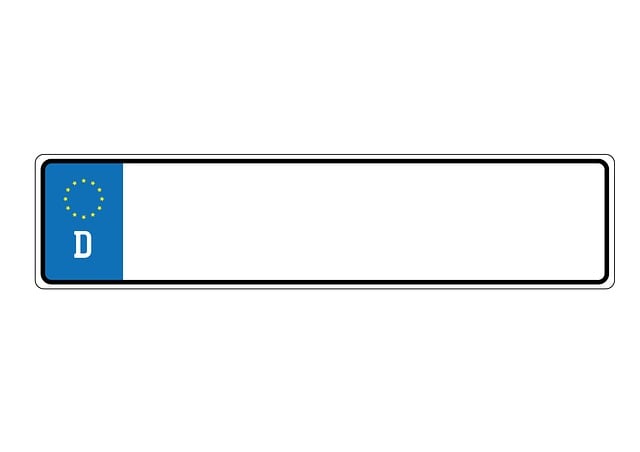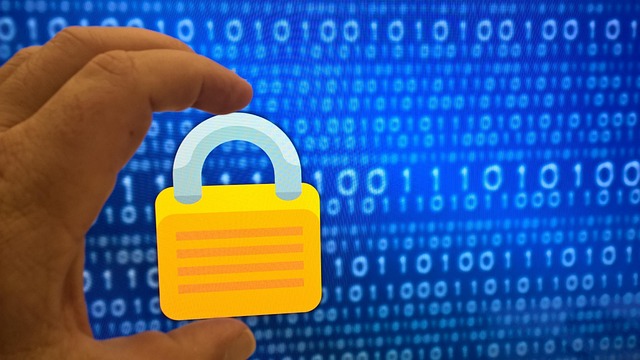In the digital era, license plates pose privacy risks due to advanced technology's ability to capture high-resolution images. Drivers are adopting measures like non-identifiable tags, privacy films, and registration screens to protect their license plate data. Unprotected or altered plates hinder traffic management systems and public safety, impacting law enforcement's ability to identify vehicles involved in crimes. Balancing vehicle privacy with clear visibility requirements is crucial. Advanced technological solutions, such as encrypted tags, specialized films, and dynamic digital displays, offer robust protection. Select License Plate Privacy methods obscure car makes and models while enabling tracking or identification, promoting harmony between public safety and personal data protection.
Protecting license plates is a vital aspect of maintaining personal privacy and security in today’s digital age. With increasing concerns over data breaches and surveillance, understanding the implications of unprotected license plates becomes crucial. This article delves into the various dimensions of select license plate privacy, exploring legal protections, technological advancements, and best practices to safeguard this sensitive information. By implementing effective methods, individuals can ensure their confidentiality and navigate the legal landscape with confidence.
- Understanding License Plate Privacy Concerns
- Legal Implications of Unprotected License Plates
- Effective Methods to Secure License Plate Data
- Technology Advancements in License Plate Protection
- The Role of Privacy Laws in License Plate Coverage
- Best Practices for Maintaining License Plate Confidentiality
Understanding License Plate Privacy Concerns

Many drivers are unaware of the potential privacy concerns surrounding their vehicle’s license plates. License plates, while essential for vehicle identification and regulation, can inadvertently reveal sensitive personal information to prying eyes. This is especially true in today’s digital age, where advanced technologies can capture and store images with remarkable clarity.
The issue lies in the fact that license plates are essentially unique identifiers linked to individual vehicles and their owners. While driving around, these plates can be photographed from various angles by security cameras, traffic monitors, or even curious onlookers. This data collection raises valid privacy concerns, especially when combined with advanced image recognition software. To address this growing problem, many drivers are opting for non-identifiable license plate tags, privacy film for license plates, or vehicle registration privacy screens, ensuring their license plate information remains secure and unrevealed to the public.
Legal Implications of Unprotected License Plates

The lack of protection for license plates can have significant legal consequences. In many jurisdictions, clear visibility of license plates is a requirement to ensure road safety and enable law enforcement to identify vehicles involved in offenses or accidents. Unprotected license plates, especially when obscured or altered, present several challenges. First, it hinders the efficient operation of traffic management systems by making it difficult for cameras and automated license plate recognition (ALPR) technologies to accurately capture vehicle data. This can lead to delays in processing violations, fines, or other penalties, potentially causing administrative backlogs.
Moreover, unreadable or altered license plates are a concern from a public safety standpoint. They may obstruct the identification of vehicles involved in criminal activities, such as theft or hit-and-run incidents. Law enforcement agencies rely on clear and legible license plate data to investigate crimes and track down responsible parties. Vehicle privacy solutions, including license plate film or unreadable labels, can interfere with these processes, potentially impeding justice and increasing the risk for innocent individuals.
Effective Methods to Secure License Plate Data

Protecting license plate data is paramount for maintaining privacy and security. To effectively secure license plate information, consider implementing robust measures that blend physical and digital strategies. One proven method is to select license plate privacy solutions like installing reflective or matte coatings on plates, which make them harder to read from the side or overhead cameras. Additionally, obstructing the view of car tags through strategic design or angling can significantly enhance privacy.
Beyond physical barriers, leveraging technology offers advanced solutions. Using specialized software to blur or obscure license plate details in images and videos captures online before sharing is a digital step towards protection. Combining these methods—both hide car tag online and physical obstructions like hiding car make and model—creates multiple layers of defense, ensuring that personal vehicle information remains secure and anonymous.
Technology Advancements in License Plate Protection

The world of license plate protection has seen significant technological advancements, offering vehicle owners enhanced privacy and security options. One of the most prominent innovations is the development of non-identifiable license plate tags, which replace traditional plates with encrypted codes or unique graphics, making it much harder for unauthorized individuals to trace a vehicle’s ownership details. This advancement ensures that even if someone manages to obtain a plate, they cannot easily identify the owner, thus deterring license plate theft and enhancing overall car security.
Additionally, modern technology allows for sophisticated obstructing techniques that effectively block the view of car plates from passersby or potential thieves. These methods range from specialized films and covers to digital displays that dynamically change the plate’s appearance, making it non-readable. By integrating these cutting-edge solutions, vehicle owners can take a proactive step in protecting their personal information and ensuring their vehicles remain secure in both public and private spaces.
The Role of Privacy Laws in License Plate Coverage

Privacy laws play a significant role in ensuring that individuals’ personal information, including vehicle details like license plates, remain secure and protected. In many jurisdictions, laws have been enacted to safeguard citizens’ right to privacy, which extends to their vehicles. These regulations often mandate that businesses and organizations implementing surveillance systems or data collection processes must adhere to strict guidelines regarding the handling of such data.
When it comes to license plate coverage, select license plate privacy solutions offer an unnoticeable yet effective way to hide car makes and models while still facilitating the necessary tracking or identification. License plate privacy guards are designed to meet legal requirements while ensuring that personal vehicle information remains confidential. This approach balances security needs with individual privacy rights, promoting a harmonious coexistence between public safety measures and personal data protection.
Best Practices for Maintaining License Plate Confidentiality

To maintain the confidentiality of your license plate and protect your privacy, several best practices can be adopted. One effective method is to use a high-quality, untraceable car tag film. This specialized film is designed to obscure the plate’s details, making it difficult for unauthorized individuals to read or trace the information. By selecting a top-tier product from reputable manufacturers, you ensure that your license plate remains unrecognizable to the naked eye.
Additionally, custom unreadable number plates offer a creative solution. These specialized plates can be tailored to fit specific design preferences while ensuring complete privacy. Whether you opt for a subtle look or something more distinctive, these custom plates make it nearly impossible for someone to track your vehicle based on its registration details. Remember, protecting your license plate confidentiality is about more than just aesthetics; it’s a crucial step in safeguarding your personal information and driving peace of mind.
Protecting license plates is a multifaceted endeavor, balancing security with privacy. By understanding the concerns around license plate data and adhering to legal implications, individuals and organizations can implement effective methods such as advanced technology and best practices to ensure confidentiality. In today’s digital age, selecting robust license plate privacy measures is crucial for maintaining personal information security. Through proactive steps and staying informed about privacy laws, we can navigate the complexities of license plate protection, fostering a safer yet more private environment.
